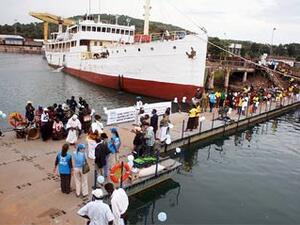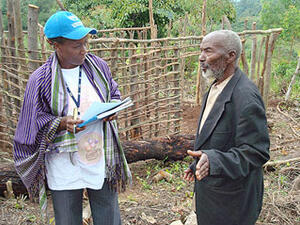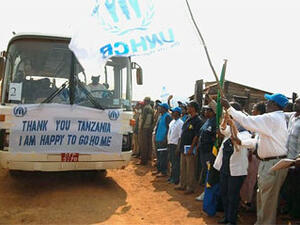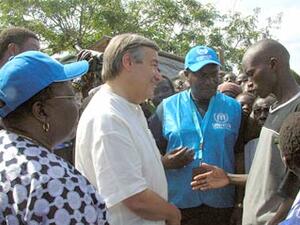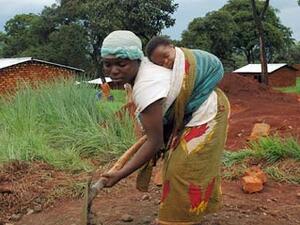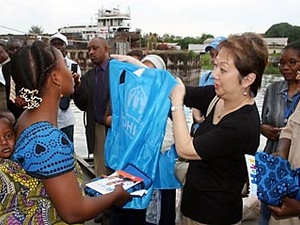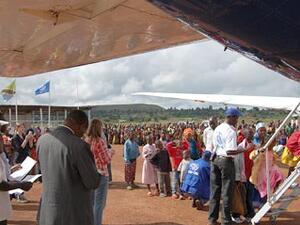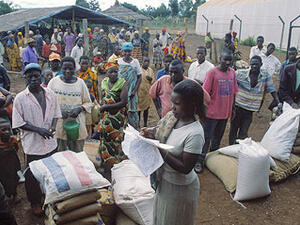UNHCR prepares transition ahead while camps are closing
UNHCR prepares transition ahead while camps are closing
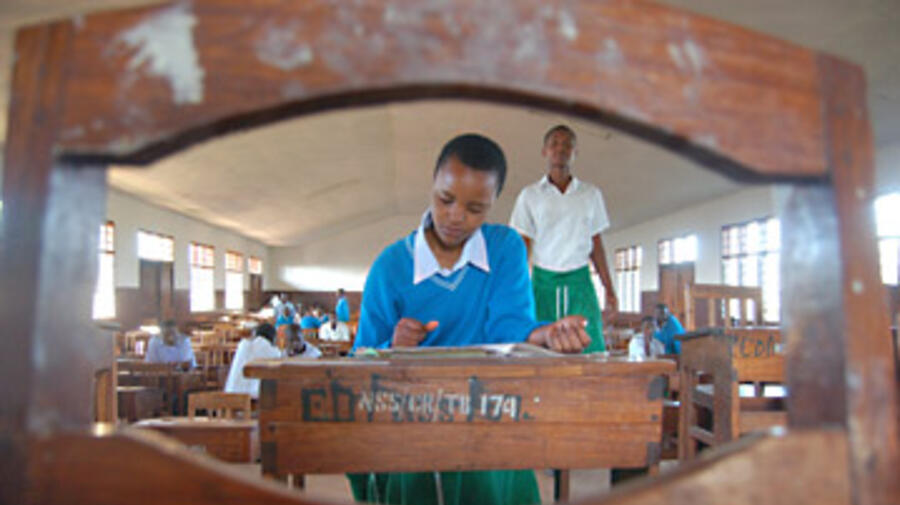
A secondary school student sits an exam in a UNHCR-funded school in Ngara.
NGARA, Tanzania, June 17 (UNHCR) - Gaudensia Juvenia has lived much of her life eking out a living near Lukole camp for Burundian refugees in north-west Tanzania, but with the facility due to close at the end of this month she worries about the future.
"We benefited a lot from the assistance that UNHCR and other organizations gave to the refugees and to us local villagers," Juvenia told recent visitors to the simple home she shares with her husband and eight children on a small plot of farmland in the picturesque district of Ngara in the border region of Kagera.
"Before, I had to walk a long way to get water. Then UNHCR installed water outlets at the camp and the villages around; life became easier," she said, before adding: "Now, almost all refugees have gone back home and Lukole will soon close. I'm afraid we will struggle again."
When Lukole closes, the Kagera region will be free of refugee camps for the first time in more than 15 years. The UN refugee agency is well aware of the concerns of locals like Juvenia and, in cooperation with the regional authorities and UN agencies, is working to ensure that the benefits from long-standing humanitarian assistance operations in Kagera and neighbouring Kigoma region do not fade away.
In the framework of the UN's "Delivering as One" programme, UNHCR and its partners have drawn up a joint programme due to start in July and aimed at addressing the region's development needs and filling the gaps that may result from the withdrawal of humanitarian support.
The programme, with a budget of US$10.8 million in the first year, will allocate resources for rehabilitation works and for the continued delivery of health and education services to local communities. "Through this transition programme, UN development agencies will step up efforts to support the needs of the local communities in the north-western regions," said Yacoub El Hillo, UNHCR representative in Tanzania.
The presence of so many refugees over the years has also put a strain on natural resources and the environment. "Unfortunately, with the presence of the refugee camps a lot of forestland in Ngara disappeared. Refugees cut down trees to get firewood for cooking and poles to construct their huts," explained Kayobera Athanase, a guard at Lukole.
To counter this deforestation, UNHCR has planted more than 14 million tree seedlings in refugee host areas throughout north-western Tanzania since 1995.
Athanase, whose children attend UNHCR-funded schools, was also worried about what will happen when Lukole closes. "I'm worried about medical services. Whenever one of my children fell sick, my wife took them to the hospital in the refugee camp. Treatment there is free of charge, not only for the refugees, but also for the local community," he said, adding that he hoped the clinic would remain open.
UNHCR has some good news for him. The refugee agency and its partners plan to clean up the camp site and rehabilitate the environment. Permanent structures, such as dispensaries, schools and the hospital, will also be rehabilitated and handed over to the local authorities.
Meanwhile, the voluntary repatriation of the remaining Burundian and Congolese refugees in Tanzanian camps continues at a good pace. In March, for the first time in 15 years, the number of refugees in the camps fell below 200,000. The Tanzanian government and UNHCR are gradually closing and consolidating the remaining camps.
By Eveline Wolfcarius in Ngara, Tanzania

